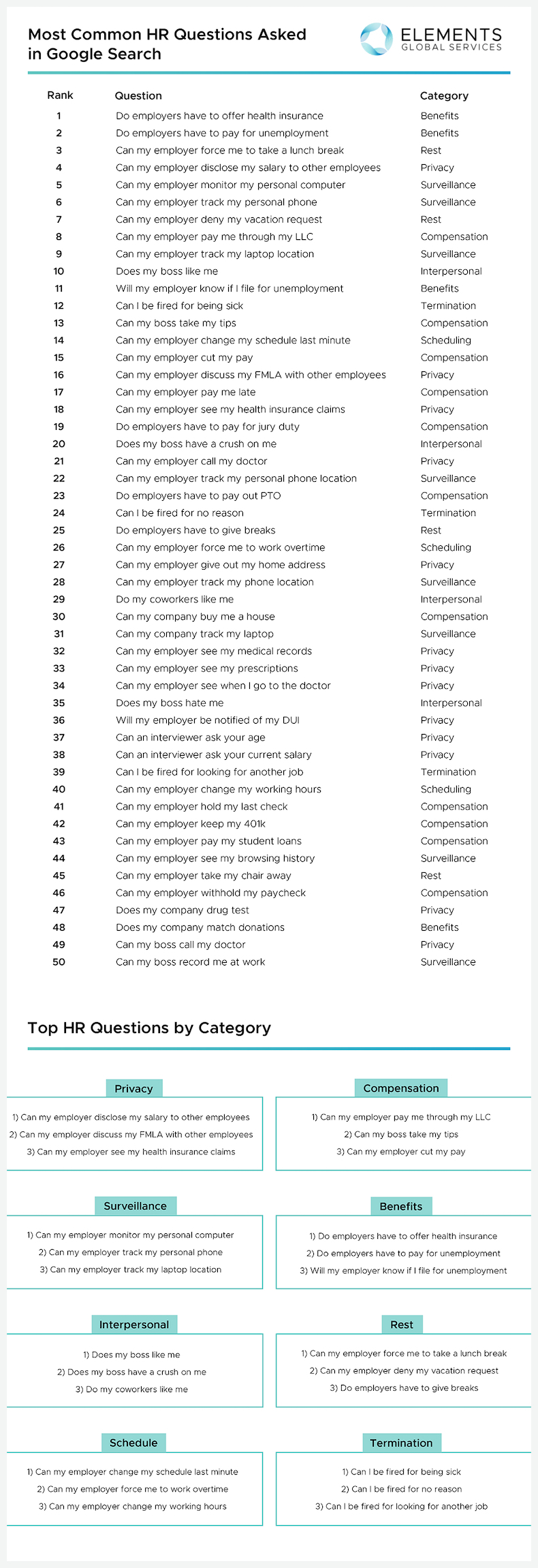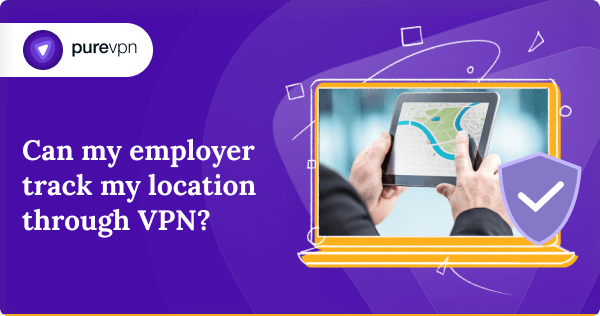Yes, your employer can track your laptop location if provided by company policy. This tracking typically requires employee consent.
Nowadays, many companies have policies allowing them to monitor employees’ devices for security and productivity reasons. However, this raises concerns about privacy invasion and trust issues in the workplace. Employees should be aware of their company’s monitoring policies and make informed decisions.
In some cases, employers may track laptop location through built-in software or external tracking tools. It is essential for both employers and employees to establish clear communication and boundaries regarding laptop tracking to maintain a healthy work environment.
How Employers Track Laptop Location
Employers have various methods to track the location of their employees’ laptops. These methods ensure that employers can keep tabs on company-owned devices and monitor their usage for security and productivity purposes. Let’s explore some of the ways employers track laptop location.
Gps Tracking Software
GPS tracking software is commonly used by employers to monitor the location of company laptops. This software uses satellite signals to pinpoint the exact geographical location of the device. Employers can track the movement of the laptop in real time, allowing them to ensure that the device is within approved areas and detect any unauthorized usage or theft.
Wi-fi Tracking
Another method employers use to track laptop location is through Wi-Fi tracking. This involves monitoring the network connections of the laptop to determine its physical location. By analyzing the Wi-Fi signals and their strengths, employers can triangulate the laptop’s position within a specified area and track its movements based on the available Wi-Fi networks.
Ip Address Tracking
Employers also utilize IP address tracking to determine the location of company laptops. Every device connected to the internet is assigned an IP address, which can be used to track its location. Employers can trace the IP address of the laptop to identify its geographical location and ensure that it is being used within approved areas.
Legal Considerations Of Tracking Employees’ Laptops
Privacy Laws
Employers must comply with privacy laws such as GDPR and HIPAA.
Employees have a right to privacy despite using work laptops.
Employee Consent
Obtaining employee consent before tracking laptops is crucial.
Consent should be informed and voluntary.
Proper Disclosure
Ensure proper disclosure of tracking practices in employee handbooks.
- Employee acknowledgment of tracking benefits both parties.
- Regular updates on tracking policies uphold transparency.
Potential Implications Of Laptop Tracking
When it comes to laptop tracking by employers, there are potential implications that can impact both parties involved.
Maintaining Trust Between Employer And Employee
Laptop tracking can lead to a breach in trust between employers and employees, affecting the overall working relationship.
Impact On Employee Morale
Constant tracking of employee laptops can negatively impact morale, causing stress and a sense of invasion of privacy.
Balance Between Privacy And Security
It is essential to strike a balance between ensuring security measures through tracking and respecting the privacy rights of employees.

Credit: www.marketingprofs.com
Methods To Prevent Laptop Tracking
When it comes to safeguarding your laptop from tracking by your employer, there are several methods you can employ to protect your privacy and maintain control over your location information. Ensuring that you implement these preventive measures can help you maintain a sense of security and privacy in the workplace.
Virtual Private Network (vpn)
Using a Virtual private network (VPN) is an effective method to prevent your employer from tracking your laptop’s location. A VPN encrypts your internet traffic and routes it through a remote server, thereby masking your IP address and location. By doing so, it prevents unauthorized access to your device’s location data.
Disabling Location Services
Disabling location services on your laptop is essential in preventing your employer from tracking its location. By turning off location services, you can prevent applications and services from accessing your device’s GPS and Wi-Fi data, thereby maintaining your privacy and control over your location information.
Physical Security Measures
Implementing physical security measures such as using laptop locks, keeping your device in a secure location, and utilizing privacy screens can help prevent unauthorized access and tracking. By taking these precautions, you can ensure that your employer has limited access to your laptop’s physical location.
Employee Rights And Obligations Regarding Laptop Tracking
As an employee, it’s important to understand your rights and obligations when it comes to laptop tracking by your employer. While it may seem intrusive, employers have valid reasons for implementing laptop tracking systems, such as ensuring the security of company data and monitoring employee productivity. However, it’s essential to strike a balance between privacy and workplace expectations. In this article, we explore key considerations for employees regarding laptop tracking.
Understanding Company Policies
Before addressing laptop tracking concerns, it’s crucial to familiarize yourself with your company’s policies regarding privacy and technology usage. Many employers have clear policies in place that outline their rights to monitor work devices, including laptops. Such policies are usually provided to employees during onboarding or can be found in the employee handbook. By understanding these policies, you’ll have a better idea of what to expect in terms of laptop tracking, the extent of monitoring, and its purpose.
Reporting Misuse Of Tracking Information
If you suspect that your employer is misusing the information gathered through laptop tracking, it’s important to take action. Begin by documenting any instances that raise concerns, such as unauthorized access to personal files or inappropriate use of tracking data. This documentation will serve as evidence if you decide to report the issue internally or to an external authority. Next, report the misuse to the appropriate department or individuals within your organization who handle privacy or ethical concerns. By reporting the misuse, you can help protect both your rights and those of your colleagues.
Seeking Legal Advice
If you believe that your rights are being violated or that your employer’s laptop tracking practices are unlawful, it may be necessary to seek legal advice. Contacting a lawyer with expertise in employment law can provide guidance and help you understand your legal options. They can review your situation in light of applicable privacy laws and advise you on the best course of action to protect your interests.

Credit: ricky-singh.medium.com
Effectiveness Of Laptop Tracking In Enhancing Security
Laptops have become an integral part of our professional lives, allowing us to work remotely and stay connected. However, this convenience also raises concerns about the security of sensitive information stored on these devices. To address these worries, many employers are implementing laptop tracking systems to enhance security. Through preventing unauthorized access, tracking stolen laptops, and identifying potential security breaches, laptop tracking has proven to be highly effective in safeguarding company data.
Preventing Unauthorized Access
One of the primary benefits of laptop tracking is its ability to prevent unauthorized access to confidential information. By utilizing GPS technology, employers can monitor the location of their laptops, ensuring that they remain within a designated area. This not only deters theft but also acts as a deterrent to potential hackers. In case of a breach, administrators can remotely wipe the data from the stolen laptop, safeguarding company secrets from falling into the wrong hands.
Tracking Stolen Laptops
In the unfortunate event of a laptop theft, tracking systems prove to be invaluable. With the ability to pinpoint the exact location of the stolen device, law enforcement agencies can be swiftly notified, increasing the chances of recovery. Furthermore, this information can aid in the identification and apprehension of perpetrators, acting as a deterrent to future thefts. Laptop tracking greatly enhances the security of company assets, minimizing the risk of sensitive information being compromised.
Identifying Potential Security Breaches
Proactive measures are crucial in maintaining a secure network environment. Laptop tracking not only helps in preventing theft but also enables employers to identify potential security breaches. By monitoring the location history and network activity of laptops, administrators can detect any suspicious activity that may indicate an attempted breach. This allows for immediate response and mitigation, preventing unauthorized access and reducing the risk of data loss.
In conclusion, laptop tracking systems have proven to be highly effective in enhancing security both within and outside the workplace. By preventing unauthorized access, tracking stolen laptops, and identifying potential security breaches, employers can protect their sensitive information and mitigate the risks associated with mobile computing. Investing in such technology is a proactive step towards maintaining data integrity and safeguarding company assets.
Noteworthy Cases Of Laptop Tracking
In recent years, the issue of employer monitoring and tracking of company-provided laptops has gained attention due to a number of noteworthy cases of laptop tracking. The use of technology to track the location and activities of employees has raised concerns regarding privacy and data protection, leading to legal actions and settlements in various high-profile instances.
High-profile Instances Of Tracking
The use of laptop tracking software by employers has led to several high-profile instances of tracking. One such case involved a multinational company that faced backlash for implementing monitoring software on employee laptops without their consent. The tracking software was found to be invasive, recording keystrokes, and capturing screenshots without the employees’ knowledge.
Another notable incident involved a company tracking an employee’s laptop location and activities outside of working hours, leading to a legal dispute over privacy violations and the extent of employer monitoring rights.
Legal Actions And Settlements
In response to these privacy concerns and breaches, legal actions and settlements have been pursued. Several employees and labor unions have taken legal action against employers for unauthorized tracking and monitoring, resulting in significant settlements and revised monitoring policies.
Legal challenges have led to court rulings affirming the rights of employees to privacy and reasonable expectations of personal freedom, prompting companies to reevaluate their monitoring practices and seek agreement with employees on acceptable use and monitoring policies.

Credit: www.purevpn.com
Ethical Considerations Of Laptop Tracking
Employers should consider the privacy rights of their employees when tracking laptop locations.
Transparent communication is essential to ensure employees are aware of any tracking measures.
Employers must establish clear ethical guidelines to protect employee rights while tracking laptop locations.
Balancing Employee Privacy And Employer Interests
Employee privacy and employer interests must be carefully balanced, especially when it comes to tracking laptop location. While employers have a legitimate need to ensure productivity and security, employees also deserve privacy and trust in their work environment. Effective policies and communication are essential to navigating this delicate issue.
Open Communication And Trust
Encouraging open dialogue between employers and employees fosters trust and transparency.
Establishing Clear Policies
Setting explicit guidelines on laptop tracking helps employees understand their rights.
Maintaining A Respectful Work Environment
Creating a culture of respect ensures privacy concerns are addressed appropriately.
Frequently Asked Questions Of Can My Employer Track My Laptop Location
Can My Employer Track My Laptop Location?
Yes, your employer can track your laptop’s location if it is connected to the company network. Most companies have tracking software installed on work devices to ensure security and monitor employee activity. However, it’s important for employers to inform employees about this tracking to maintain transparency and trust in the workplace.
Conclusion
Your employer can track your laptop location for security and productivity reasons. It’s important to review your company’s policies and understand your rights regarding privacy. If you have concerns, have an open conversation with your employer to address any potential issues and find a suitable resolution.
Remember to always prioritize communication and cooperation in such matters.


0 comments